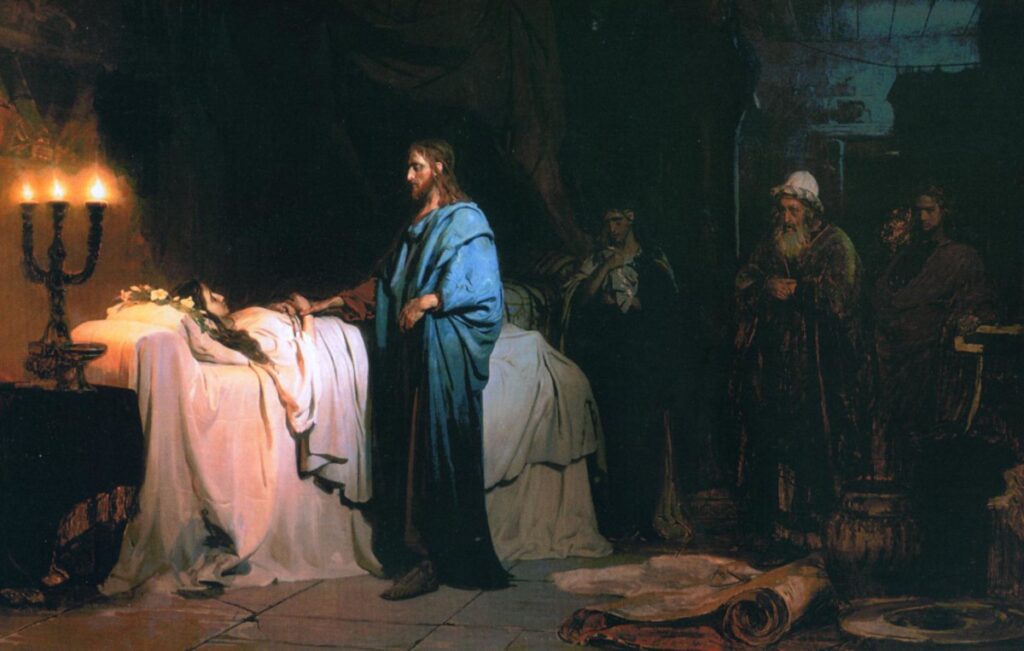
During the past two or three weeks the gospels of the Mass have shown us contrasts. There are contrasts between Christ and the leaders of Israel, contrasts between those who are willing to follow him and those who close their hearts to the Gospel message, contrasts between the healing power of God and human illness, contrasts between faith and unfaithfulness.
I found it very enlightening that last week, in the same gospel passage, the official of the synagogue asked Jesus to touch his daughter to bring her back to life, and the woman who suffered from a hemorrhage was willing to touch Christ’s mantle to be cured. Both showed a great faith in the healing power of God. Christ’s body, as Aquinas teaches, is a living instrument united to his divinity so that the power of God passes through his humanity, and reaches those who suffer a bodily ailment, and can be cured. This wonderful contrast between God’s power and human frailty manifests, at least, implicitly, the power of the incarnation: Christ is true God and true man.
Truly Present
The same power is at work in the sacraments and, even if we do not see, for instance, the physical Christ in the Eucharist, he is really present. In fact, not seeing him in his bodily shape—because he is hidden under the species of bread and wine—allows us to exercise our faith much better. The same faith that Jesus required from the synagogue official or from the woman, he requires from us either if we touch him through faith or if he touches us, spiritually, through the sacraments.
The final contrast I would like to mention is the one between the bad soil (the path, the rocky ground and the thorns) of the parable of the sower, and the rich soil our souls are supposed to be when it comes to let God’s word bear fruit in our lives. Sometimes, to experience such contrast is helpful to make us realize how complacent we may have become, and we should not forget that the word of God, described in the Scriptures as a sword, can make us a bit uncomfortable, but in a good way.
May Jesus, the Word of God become flesh, give us the grace to be faithful to his message and bear fruit for eternal life.
God bless you all,
Fr. Marcelo J. Navarro Muñoz, IVE, PhD
Author: The Contribution of Cornelio Fabro to Fundamental Theology. Reason and Faith: cambridgescholars.com/product/978-1-5275-9315-2
Desde Fossanova: amazon.com/Fossanova-Spanish-English-marcelo-navarro/dp/1947568264
1 Ilya Repin (1844–1930), Raising of Jairus Daughter, from https://www.artbible.info/art/large/249.html, accessed July 17, 2023.
